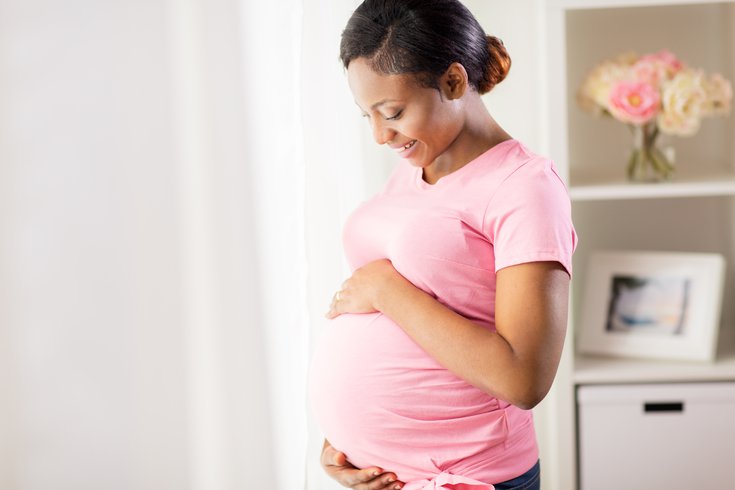
June 08, 2022
 Source/Image licensed from Ingram Image
Source/Image licensed from Ingram Image
A pregnant woman transfers components of her immune system, including antibodies, to her baby to protect it until its own immune system is strong enough to combat invading pathogens.
It has been known for years that pregnant women produce super antibodies to protect their newborns, but scientists now say they can explain how these antibodies work and use their findings to create improved treatments for deadly infections.
Though children strengthen their own immune systems through exposure to pathogens and vaccinations, they are highly vulnerable to illness in their first few months of life. That is when a mother's super antibodies come into play.
A pregnant woman transfers components of her immune system, including antibodies, to her baby to protect it until its own immune system is strong enough to combat invading pathogens. But exactly how this happens has been little understood
Scientists at Cincinnati Children's Hospital found that pregnancy changed the nature of a woman's antibodies, supercharging them so they can protect against a wider range of infections.
"For many years, scientists believed that antibodies cannot get inside cells," said Dr. Sing Sing Way, an infectious disease doctor at Cincinnati Children's Hospital. "They don't have the necessary machinery. And so, infections caused by pathogens that live exclusively inside cells were thought to be invisible to antibody-based therapies. Our findings show that pregnancy changes the structure of certain sugars attached to the antibodies, which allows them to protect babies from infection by a much wider range of pathogens."
The researchers said their findings, published in Nature, may allow scientists to create new drugs and vaccines by mimicking these super antibodies. This could include therapies that target infections in pregnant mothers and newborn babies, but also antibody-based therapies in other medicine fields.
In a study involving mice, the researchers found that antibodies are supercharged through a molecular process that ramps up production of immunoglobulin G, or IgG, the most most common type of antibody. It can then provide expanded protection to the baby.
"This change is the light switch that allows maternal antibodies to protect babies against infection inside cells," Way said.
By replicating the molecular changes that occur to antibodies during pregnancy, scientists may be able to develop stronger monoclonal antibody treatments, particularly for intracellular infections like including HIV and respiratory syncytial virus, a virus that can cause serious illness among infants.
The researchers said their findings underscore the importance of women of reproductive age receiving all available vaccines. The immunity needs to exist within the mother, either through natural exposure or vaccination, in order for it to be transferred to the child.
The team also pointed out that women can transfer more of their antibodies to their babies through breastfeeding.
The maternal-to-fetus antibody transfer starts in the second trimester of pregnancy. As the pregnancy continues, this transfer ramps up, providing the newborn with a stockpile of protection against potential infections that lasts from their first few hours of life to about 6 months.
This shared immunity has received a lot of attention during the COVID-19 pandemic as scientists have investigated whether COVID-19 antibodies could be transferred from mothers to their newborns.
One study published earlier this year found persistent COVID-19 antibodies in infants born to mothers who were vaccinated during pregnancy. Vaccination was shown to offer a higher level of protection compared to natural exposure to the coronavirus.
Super antibodies — highly potent antibodies that offer broad protection against many types of infections — are not just found in pregnant women. They also have been found in a small select group of non-pregnant people, too.
Some people who were exposed to the coronavirus, but never developed symptoms, have been discovered to have super antibodies specific to that virus. But only 5% of people infected with COVID-19 have them.
Super antibodies also tend to be neutralizing and not binding antibodies. Neutralizing antibodies are able to prevent an infection by stopping its spread throughout the body. Binding antibodies attach to the pathogen, but it can't prevent it from spreading. They signal to other parts of the immune system that there is an invader.
Scientists say understanding why certain people develop these antibodies and others do not could help with the design of future vaccines and treatments for COVID-19.